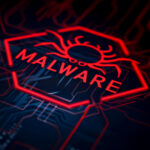How to Ensure Your Remote Workforce Isn’t Making You Vulnerable
 Considering the current popularity of remote operations, the security of your business’ resources should be one of your greatest concerns. While this process isn’t necessarily easy, it isn’t something you can afford to neglect. Let’s take a few moments and walk through some of the most critical considerations to your office and its data security.
Considering the current popularity of remote operations, the security of your business’ resources should be one of your greatest concerns. While this process isn’t necessarily easy, it isn’t something you can afford to neglect. Let’s take a few moments and walk through some of the most critical considerations to your office and its data security.
Acknowledging the Threat
First off, it is important to recognize that chances are good that your business will be attacked in one way or another, particularly when people are working remotely. Consider how well you’ve secured your business’ network infrastructure—what are the chances that your team members have done the same in their homes? There are also many threats that specifically target many of the applications that are commonly used for remote work.
When implementing remote work, the most important thing is to acknowledge that your team members are at a greater risk than otherwise. This makes it even more vital that they are prioritizing the best practices that will help keep them secure.
Insulate Sensitive Information
Some of your business’ data is bound to be of a more private, personally identifiable nature. This kind of information needs to be particularly protected, denying any without authorization access to things like passwords, payment cards, or email addresses. Applying role-based access requirements and similar prerequisites helps to limit the data an employee can see; and by extension, a cybercriminal can access through them.
It also doesn’t hurt to require your team to connect to your infrastructure, rather than pulling data to their own devices. That way, any changes they make will be stored centrally, not on their individual device.
Use a Virtual Private Network
Speaking of connecting to your infrastructure, a virtual private network helps to protect your data from spying eyes as your team members work remotely. While it isn’t a cybersecurity cure-all, you can at least know that the encryption of the VPN is keeping your data safe in transit.
Require Multiple Forms of Authentication
Hearkening back to the access controls we discussed earlier, you should always have your data storage protected with the most secure solutions available. Multi-factor authentication—or requiring more than just a remembered password along with their username—has become a popular choice, with options ranging from one-time generated access codes to biometrics. This helps you keep your data locked down and inaccessible to all except those whose roles call for it.
Does remote work make your security a little more challenging to ensure? Sure, but during a time when the safest way to operate is remotely, the little extra effort now will be well worth it in the long term. If you would like assistance in implementing any of these security features into your remote operations, or any other IT business utility, make sure to call Ashton Technology Solutions at 216 397-4080. We’re happy to help.






